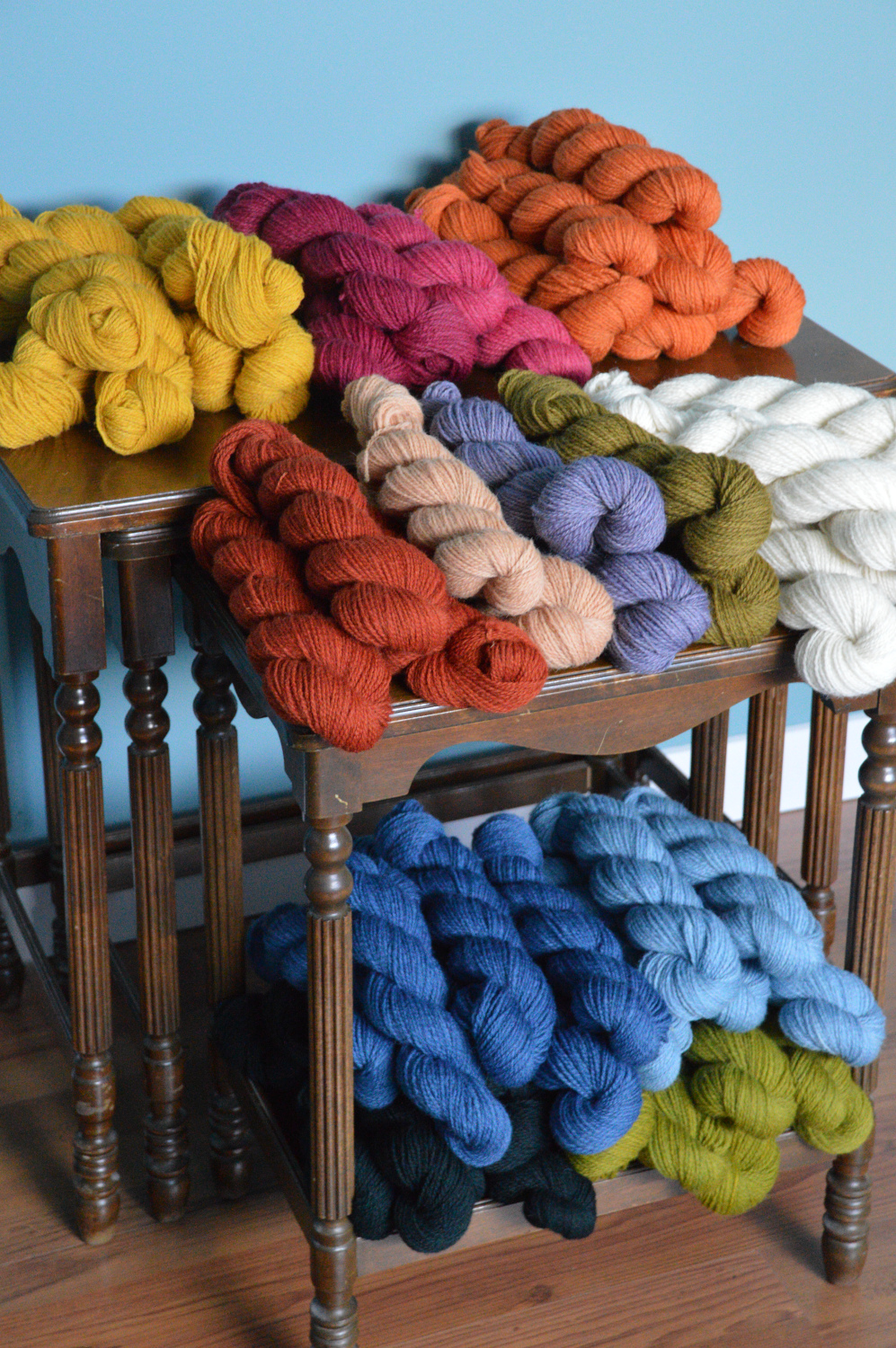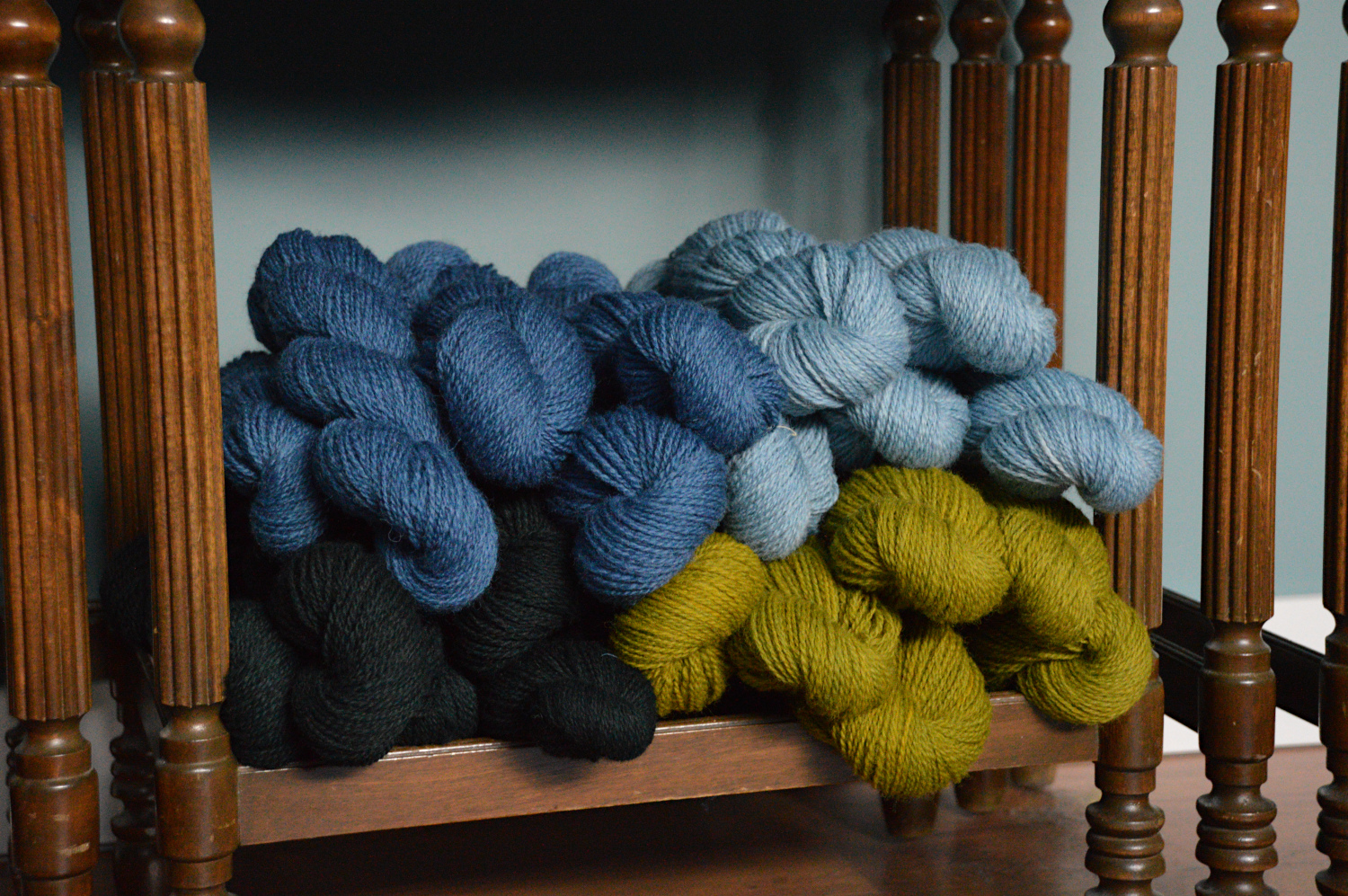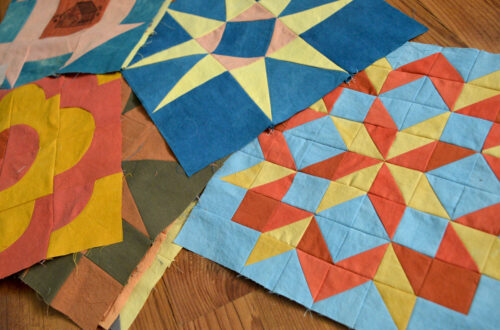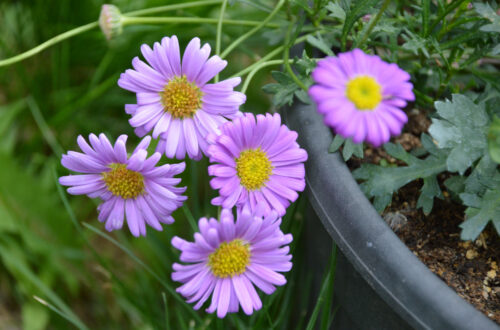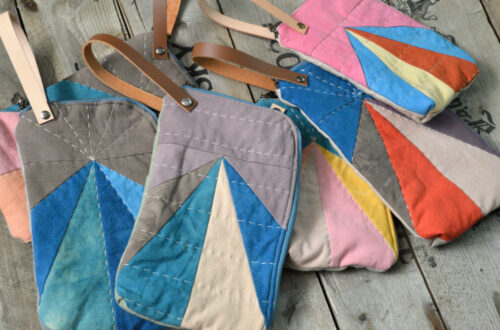Having a small run of 100% Alberta grown and processed yarns was a dream of mine for years. With the opening of new mini-mills in Alberta, I was finally able to achieve that goal in 2020 when I received my first batch of yarn back from Rosebud River Fibre Mill.
Small batch, mill spun yarns are an integral part to the Canadian wool landscape. A hundred years ago wool production was a major industry in Canada, but after World War II, with the rise of synthetic fibres and processing, the whole industry suffered. We lost most of our wool processing capacity in that time. Most Canadian wool now is sold for export, processed overseas (frequently China), then sold back to us in a finished form. This drives me crazy because we have a strong, robust sheep industry in Canada, and particularly in Alberta.
However, in the past several years, Canada’s home-grown wool industry is seeing a resurgence. More mills and mini-mill systems are opening up across the country, and sheep farms are having their own wools processed to offer to consumers. It’s a really exciting time for Canadian wool.
My yarns are all limited; the yarn itself, along with the colours. What I have in stock is what’s there, and once they are gone, they’re gone. The next batch will likely be quite different, and that’s something I find particularly exciting about this whole project. I won’t have a standard yarn that yarn companies have, and the whole point is to utilize different wools and different yarns from right here in Alberta.
You can find everything currently in stock and for sale right here.
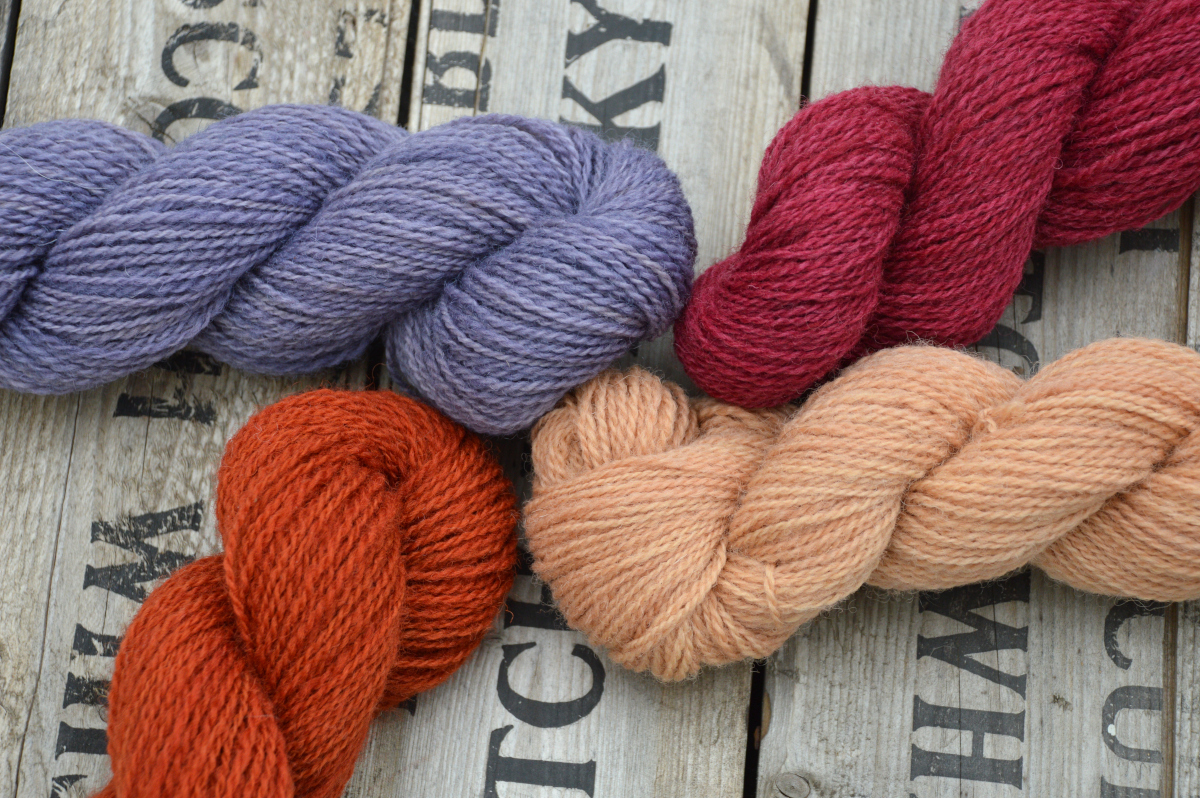
If you’re an old-hand at buying yarn/textiles from smaller Canadian mills, the info below is likely nothing new. However, if this is your first go with a smaller mill spun yarn, you may not quite know what to expect, so read on.
No Harsh Chemicals
Most larger mills – especially those overseas – will use bleaching agents and/or acids during their processing. The bleach creates an even white for dyeing, while the acids dissolve any left over hay or vegetable matter in the fibre prior to spinning. The mill I use doesn’t use either of these.
The only chemical used is a detergent used by Rosebud River Fibre Mill for washing the fleeces at the first stage, and again at the final stage after spinning (to remove spinning oils). Because of this, you may find a random piece of hay in your yarn or roving. Having said that, by the time the spun, undyed yarn gets to me I struggle to find even a handful in the whole batch, and by the time I’m done dyeing there’s almost none. If you do find a piece of hay, just pick it out and keep going.
Naturally Dyed goods
All my textiles are dyed with natural dyes. I use dyes either from my garden, sustainably harvested in the wild, or ethically sourced dyes.
A bit more care is required to take care of your naturally dyed goods. Fortunately, it’s not really any more care than wool itself requires. I wrote up a quick FAQ here with storage and washing tips to keep your naturally dyed skeins looking good for a long time.
Knots
Because of the way the yarn is spun, you may find a knot or two in your skein. This is completely normal. You can just continue knitting with the knot in, or you can cut the knot out to do your preferred join (my favourite is the Russian Join).
Sometimes a skein is slightly more inconsistent than I like, or there’s more knots than standard. These skeins will be discounted and sold as mill ends – they’re an awesome way to test out a cheaper version.
Wool type
I like experimenting, and I plan to do a different wool or spinning type each year. The 2020 clip I selected was North Country Cheviot from a flock I’ve been using for years – in fact, if you’ve bought North Country Cheviot from me before, it was this exact flock. I absolutely adore Cheviot. It’s a toothy bouncy wool, and excellent for the kind of hard-wearing garments and goods I like to make. Don’t expect a merino feel from Cheviot, but do expect a wool that will stand up to wear and time. Cheviot also softens with washing, and as a down-type it has the added bonus of being difficult to felt.
The 2021 wool clip has already been purchased, so stay tuned for a lovely Icelandic coming in late 2021 or 2022 (!!).
So that’s it, my quick and dirty introduction to small batch, 100% locally produced yarns. Whether you purchase from my shop, or any other offering small batch locally produced yarn, I hope you take a moment to really connect with the yarn. It has life to it, and is an important part to our fibre sheds.
